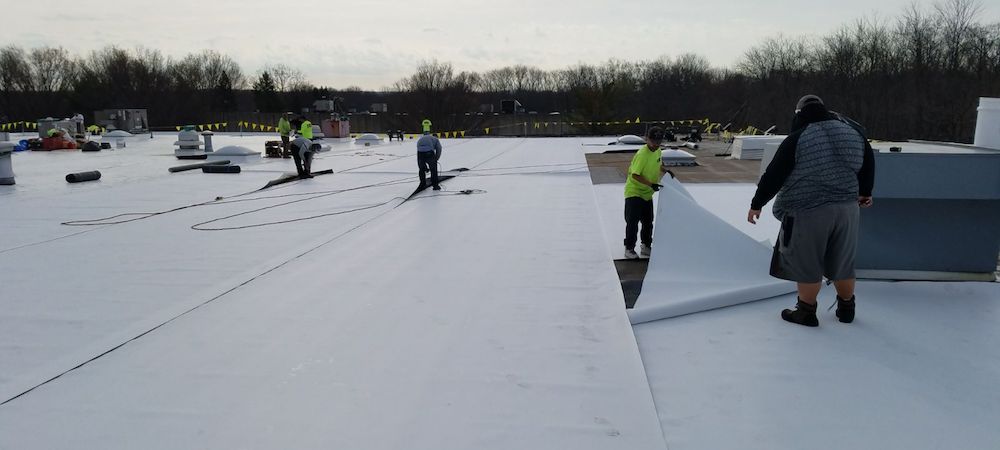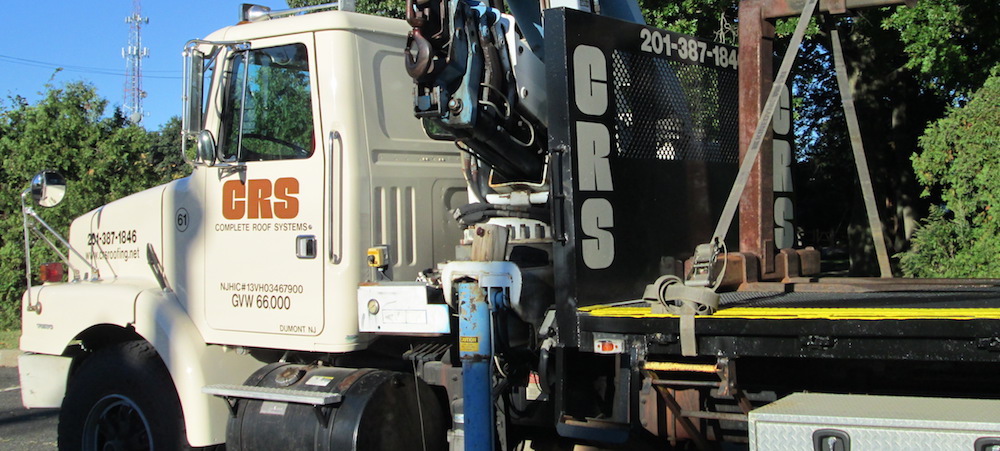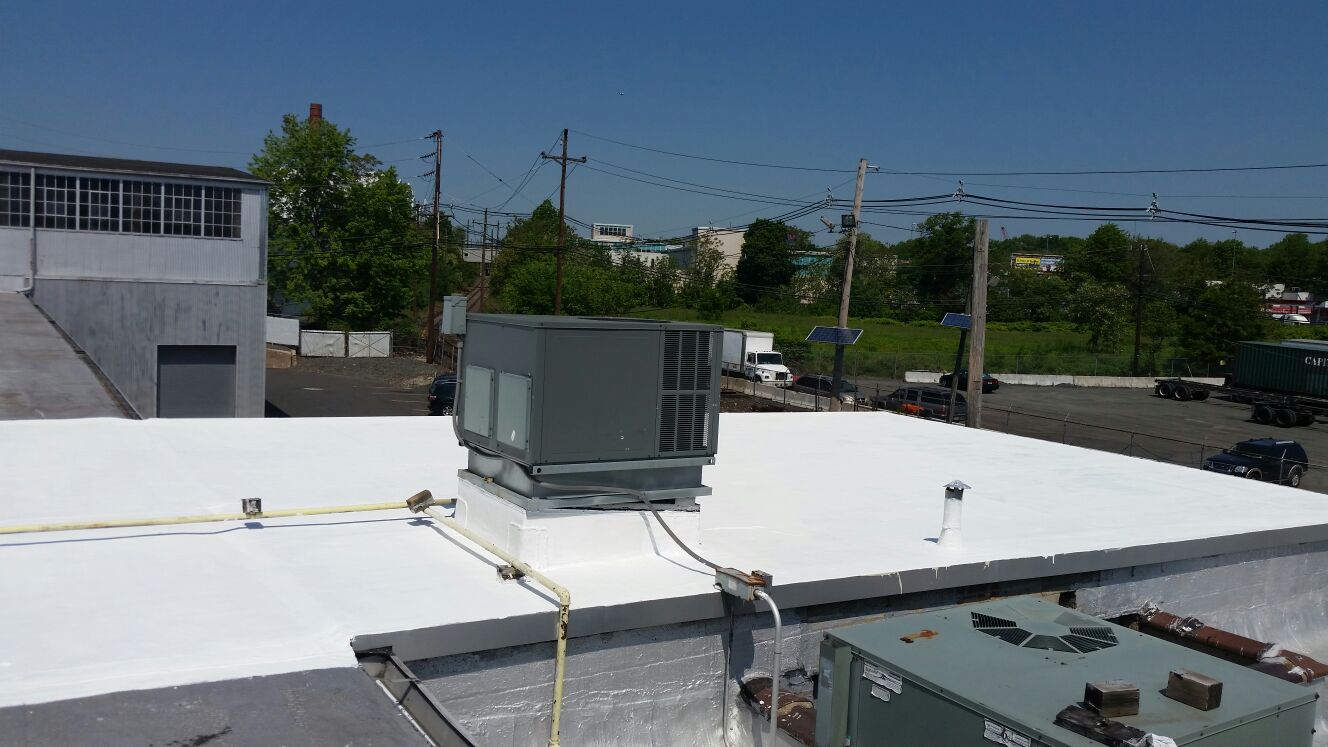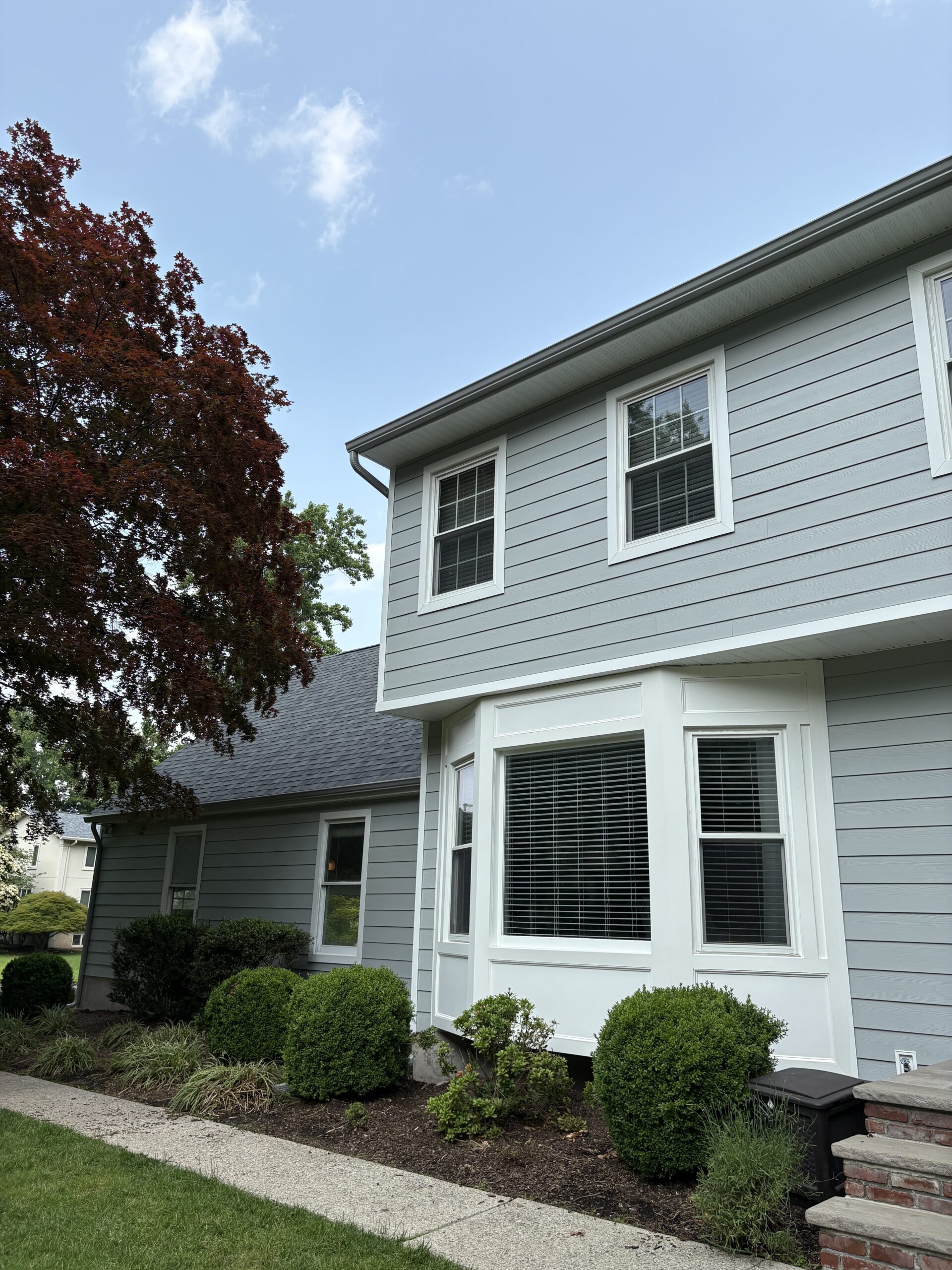Two of the most common commercial flat roof systems found in the Northeast are modified bitumen and thermoplastic polyolefin (TPO). Modified bitumen roofing has been around since the 1970s when it was developed to address ongoing issues with traditional asphalt roofs, while TPO roofs began rising to popularity in the 1990s. TPO roofing performs well in extremely hot and bitterly cold conditions — perfect for the weather extremes common across New Jersey and nearby states.
The tough, single-ply membrane of TPO roofing material retains its flexibility in below-freezing temperatures, which helps it deal well with the weight of ice and snow as well as the impact of hail. Properly installed TPO membranes typically expand and contract with minimal cracking and blistering, even in the hot summer sun, making them ideal for businesses located in New Jersey, Pennsylvania, and Connecticut.
The surging popularity of TPO commercial roofing is undeniable. Today, more TPO roofs are installed than all other flat roofs combined. The confidence manufacturers have in their TPO roofing is reflected in the substantial warranties they offer.
Thermoplastic Polyolefin (TPO) Flat Roofs

TPO roofing is also known as flexible thermoplastic polyolefin (FTPO) roofing. There are three kinds of TPO commercial roof installations: fully adhered, ballasted and mechanically fastened.
TPO Roofing Advantages
In general, a TPO roof is an excellent investment, considering the numerous advantages over a modified bitumen roof. The tough, tear-resistant single-ply membrane resists chemical spills, oil and grease. TPO roof systems are also UV-resistant to resist cracking and other sun damage, and fully recyclable. TPO single-ply roofing is often considered a “green option” because no plasticizers are included in the formulation, which is a plus for companies seeking to minimize their environmental footprint.
Building owners and managers have the option of selecting from more than a dozen different colors, including energy-saving white. A white roof reflects more of the sun’s rays, reducing heat absorption, lowering the costs of cooling the building. The variety of colors make it possible to match your new roof to your building’s exterior color scheme for an appealing look. Additionally, some of the cost of an Energy Star-rated TPO roof may be recovered through lower energy costs in the years to come.
Another advantage of a TPO roof is that it is often possible to apply TPO roofing systems over pre-existing modified bitumen or metal roofing as long as the current roof is in sound condition. The application of a new roof system over existing roofing eliminates tear-off costs and reduces disposal expenses, lowering the initial investment.
TPO is a weldable and reheatable material, which means that it is possible to re-weld seams years later if there are leaks or other damage. The smooth surface of TPO roof systems is also easier to clean and maintain than granular-surfaced roofs like modified bitumen.
The thickness of TPO single-ply membranes varies from about 40 to 80 mils. If your roof is situated in an area where punctures from sharp or falling objects (like large branches) are a concern, it is advisable to select a thicker membrane. This thicker membrane can help reduce the need for repairs due to punctures or other damage.
As with all commercial roofing systems, installation to specifications is key. TPO roof failures are often the result of damage during installation or seams that are not properly welded. Seam failures may lead to leaks or catastrophic failures from wind uplift. Fortunately, these are issues that can be avoided with proper installation by a skilled, experienced roofing contractor.
Today’s top manufacturers, like Carlisle Syntec, produce high-quality, long-lasting TPO membranes. To ensure proper performance of a new TPO roof system, proper installation by a certified commercial roofing contractor like CRS Roofing is a must.
Modified Bitumen Flat Roofs
Commercial customers may consider a modified bitumen roof due to its low cost. However, the disadvantages are such that many major commercial roofing contractors no longer install them.
In the 1970s, modified bitumen came along as an upgrade over traditional asphalt roofs for commercial buildings. The term “modified” refers to the addition of substances like atactic polypropylene (APP) or styrene butadiene styrene (SBS) that were intended to enhance longevity and flexibility compared to regular asphalt roofs.
Modified Bitumen Roofing Disadvantages
In the decades since the introduction of modified bitumen roofing, several problems have been identified. First, although an APP-modified bitumen roof is designed to resist UV-light damage, blistering, cracking and oxidation, a lack of standards led some manufacturers to skimp on the addition of the APP modifier, which caused the roof to underperform and lead to costly damage.
Second, although the gravel spread over a modified bitumen roof is intended to offer UV and hazard protection, the granular surface often makes it more difficult to detect leaks and correct drainage issues, which can lead to more costly damage down the line.
Third, the use of an open flame torch during installation can be a fire hazard. There have been instances of buildings burning when a torch was mishandled. The risk is substantial enough that some insurers will not cover roofers who apply modified bitumen using the open torch method.
Because of the superiority of a TPO roof, we recommend seeking a contractor with experience installing TPO roofing on commercial buildings of all sizes.
Contact Us for Assistance
Since 1977, CRS has diagnosed and resolved all kinds of roofing issues. We use our experience and knowledge to provide our clients with effective customized roofing solutions from Bergen County, NJ, to PA and CT.
When it comes to modified bitumen vs. TPO roofing, we prefer TPO because it is a superior product. We specialize in the installation of customized single-ply roof systems, including those with TPO, PVC and EPDM membranes.
Whether you need a basic repair or a commercial roof replacement, we’d welcome the opportunity to come out and take a look at your roof. After a thorough inspection, we’ll carefully review your options with you. Estimates are always free. Please contact us today!





